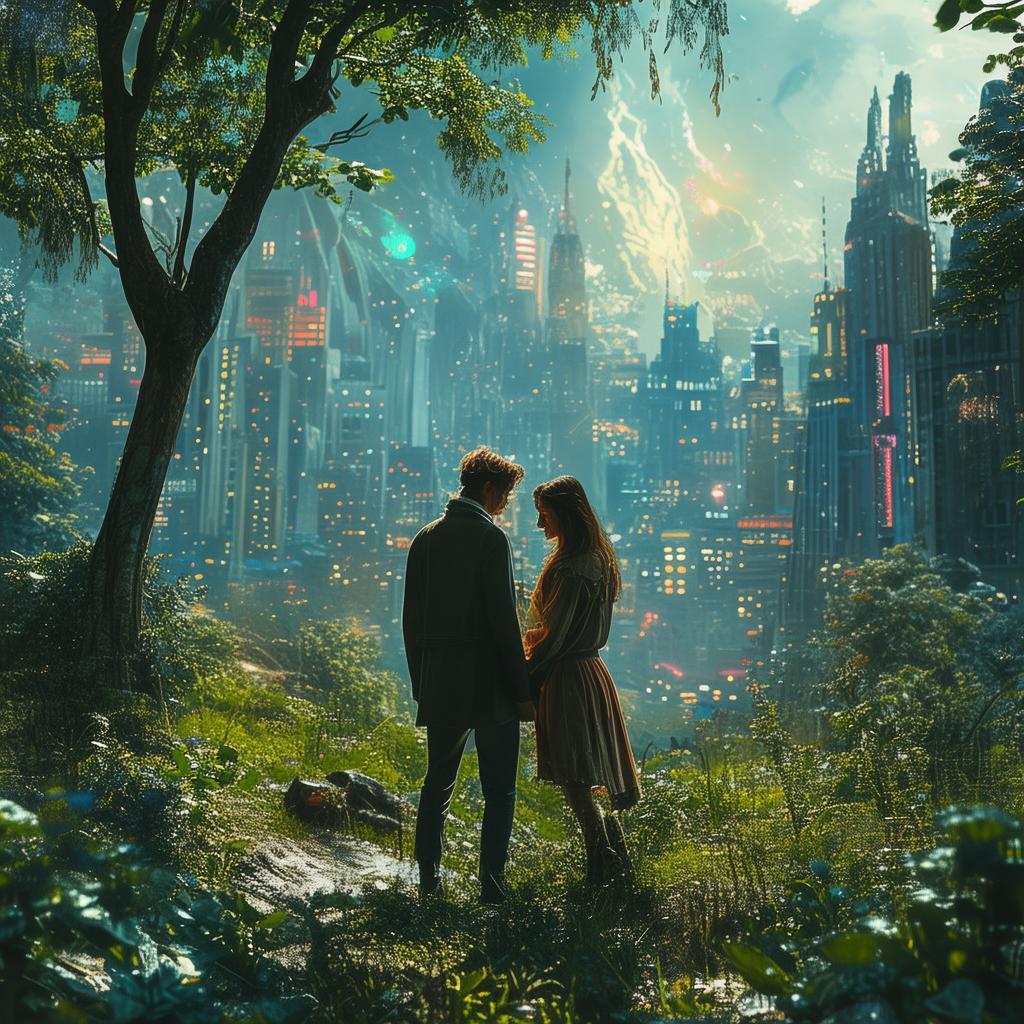The Love That Healed Nanjing's Silent Streets
In the heart of Nanjing, where the echoes of history still resonate through the silent streets, there lived a woman named Ling. Her name was a whisper of the past, a silent testament to the resilience of the city and its people. It was a city that had seen more than its fair share of sorrow, its streets stained with the blood of war and the tears of its inhabitants.
Ling had grown up in the aftermath of the conflict, her childhood a tapestry of silence and shadows. Her parents, both survivors of the war, had instilled in her a deep sense of duty to heal the wounds of the past and to build a future where love could flourish. As she grew, she became an artist, her paintings a reflection of the beauty and pain that coexisted in Nanjing.
One day, a letter arrived, a letter that would shatter the silence of her silent streets. It was from a man named Zhi, a man she had once known, a man whose name had become a ghost in her memory. The letter spoke of a shared past, a love that had been lost to the chaos of war, and a hope that it might be found again.
Intrigued and heartbroken, Ling decided to embark on a journey to uncover the truth behind the letter. She returned to the old neighborhood, a place she had not seen in years, where the scent of blooming magnolias and the sound of distant laughter had once filled the air. Now, the streets were quiet, the buildings worn, and the memories heavy.
As Ling walked through the neighborhood, she encountered old friends and neighbors, each one a story of resilience and loss. She heard tales of the war, of love and sacrifice, and of a city that had risen from the ashes. Among these stories, she found a thread that led her to Zhi.
Zhi was an engineer, a man of quiet strength and unyielding determination. He had spent years rebuilding the city, his hands mending the scars of war with every brick and beam he laid. When Ling finally found him, he was working on a project that would change the face of Nanjing forever—a park dedicated to peace and remembrance.

Their reunion was awkward, tinged with the bitterness of the past. But as they spoke, their words became a bridge, connecting their broken hearts. They shared stories of loss and hope, of love that had survived the worst of times. And in sharing, they found healing.
The park that Zhi was building became a symbol of their love and the love that could heal Nanjing's broken hearts. It was a place where people could gather, to remember and to forgive, to find solace in the beauty of nature and the strength of community.
As the years passed, Ling and Zhi's bond grew stronger. They worked together, their hands and hearts intertwined in the service of healing. They taught the younger generation about the past, about the importance of reconciliation, and about the power of love to overcome even the deepest wounds.
One day, as they stood together in the park, watching the children play, Ling realized that the love that had brought them together was the same love that had healed the city. It was a love that had no boundaries, a love that could bridge the gaps of time and space, a love that could heal the silent streets of Nanjing.
And so, in the heart of the city, where the past and the present collided, love found a way to heal the broken hearts of Nanjing. It was a love that was not just between two people, but between a city and its people, a love that would endure for generations to come.
✨ Original Statement ✨
All articles published on this website (including but not limited to text, images, videos, and other content) are original or authorized for reposting and are protected by relevant laws. Without the explicit written permission of this website, no individual or organization may copy, modify, repost, or use the content for commercial purposes.
If you need to quote or cooperate, please contact this site for authorization. We reserve the right to pursue legal responsibility for any unauthorized use.
Hereby declared.









